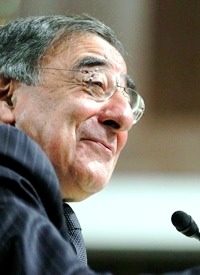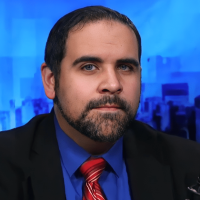
Receiving very little opposition and easy questions regarding troop deployments and withdraw dates for Afghanistan and Iraq, the Senate overlooked Panetta's past record, which puts into question the eligibility of Panetta as Secretary of Defense.
Careful observation of former Rep. Panetta’s record in the U.S. House of Representatives reveals a history of votes perceivable as in contrast with U.S. national security objectives, which if confirmed as Sec. of Defense may compromise U.S. national defense.
As a member of the U.S. House of Representatives, Rep. Panetta voted in the following manner on Defense issues:
• NAY on the reaffirmation of the Mutual Defense Treaty with Taiwan.
• YEA on continuing foreign aid to the Sandinista government of Communist Nicaragua.
• YEA on extending most favored nation status to the Soviet Union and Warsaw Pact states.
• YEA on ceding control of the Panama Canal to the pro-Soviet Panamanian government.
In addition to his voting record, in 1986, Rep. Panetta publically opposed what he called President Ronald Reagan’s “illegal and extraordinary vicious wars against the poor of Nicaragua, El Salvador, and Guatemala.” This, Panetta said, as he pledged his support for the Soviet satellite government of Daniel Ortega in Nicaragua as well as other KGB and DGI (Cuban intelligence) backed Marxist paramilitary groups throughout the Western Hemisphere in Latin America.
Panetta’s solidarity with these communist-backed forces may have been in part due to his close affiliations with the Institute for Policy Studies (IPS), a Marxist think-tank in Washington D.C. In a 1978 article in National Review, Brian Crozier, director of the London-based Institute for the Study of Conflict, described the IPS as being the "perfect intellectual front for Soviet activities which would be resisted if they were to originate openly from the KGB."
The IPS was founded in 1963 by Richard Barnet, a former Sovietologist for the U.S. State Department's Arms Control and Disarmament Agency during the Kennedy Administration, and by Marcus Raskin, who briefly served as a member of the Special Staff of the National Security Council and as a national security affairs aid to National Secuirty Advisor McGeorge Bundy, also during the Kennedy Administration.
Both men became disillusioned with U.S. disarmament policies toward the Soviet Union, fearing that the United States was not disarming as much as it should. As a think-tank, the IPS has stated that is a "source of radical scholarship." However, even its director has admitted that its "scholarship" is not "academic," but rather seeks to influence policy by the use of film strips, documentaries, articles, books, and other visual aids presented to members of Congress — primarily liberal members of House and Senate in both the Democratic and Republican parties.
The subversive nature of the IPS has been recognized as a subversive revolutionary communist front by former prominent members of Congress, including Rep. John Ashbrook (R-Ohio), Rep. John Rarick (D-La.), and Rep. Larry McDonald (D-Ga.), who was also a member and eventual leader of The John Birch Society.
According to the Congressional Record, on September 26, 1977, Congressman Larry McDonald said the following of the IPS:
The Institute for Policy Studies is a consortium of Marxist New Leftists organizing for a 'new economic and political world order' and an American neutralized as a world power through a variety of tactics. Among these tactics have been an organized attempt to dismantle and cripple the U.S. foreign and domestic intelligence capability; organize violent street demonstrations such as the 1971 Mayday riots in Washington, D.C., to shut down the Government in support of the Vietcong; organize an alternative program for State and local public officials which places them in contact with their counterparts in foreign Communist governments and parties; and a sort of direct lobby of subversion from the top in which IPS attempts to gain influence in Congress and the administration through seminars for staffers and direct contacts with officials and lawmakers.
Among those congressmen the IPS gained influence over was then-Representative Leon Panetta. In an article published in the November 1983 issue of the American Opinion (precursor publication to The New American), entitled “Moscow’s Friends at The Institute for Policy Studies,” the author, Dr. S. Steven Powell, PhD., writes:
The congressional supporters for the Institute for Policy Studies included many of those who biennially commission I.P.S. to produce an “Alternative” Budget that dramatically cuts defense spending while increasing the spending for social welfare to levels only dreamed of by Karl Marx. In this pact of I.P.S. intimates [are] such luminaries as … Leon Panetta (D.-California), Chairman of the Budget Process Task Force.
Earlier that year, on June 5, 1983, the IPS gave a video presentation of a film entitled Target Nicaragua, accusing the CIA and American-backed anti-Sandinista freedom fighters, or “Contras,” of committing atrocities against innocent Nicaraguan citizens. The one-sided propaganda film omitted any mentions of the atrocities committed by the communist Sandinista government and neglected to inform the viewer of the government’s role as a Soviet proxy in the Western Hemisphere, fully backed by Moscow and Havana. The film was presented to the IPS' liberal allies in Congress.
The following month, on July 19, 1983, on the floor of the House, Rep. Panetta condemned the “U.S.-sponsored covert action against Nicaragua,” stating that it was “among the most dangerous aspects of the [Reagan] administration’s policy in Central America.” Panetta complained that “the U.S.-backed anti-Sandinista guerrillas now outnumber the Communist rebels in El Salvador by almost 2-to-1.”
Saying nothing of the Soviet Union’s imperialist interventions to communize Latin America, Rep. Panetta went on to urge his colleagues to join him in supporting H.R. 2760, the Boland-Zablocki bill to terminate U.S. efforts to resist communism in Nicaragua. It should be noted that the Boland-Zablocki bill was also supported by the IPS.
Panetta was also a key supporter of the IPS. According to S. Steven Powell in his authoritative book Covert Cadre: Inside the Institute for Policy Studies (1987), pages 249-250: “April 5, 1983, IPS threw a large twentieth-anniversary celebration to raise funds." On the fundraising committee for the event were 14 then-current members of the U.S. House of Representatives, including “Leon E. Panetta (D-Calif.), chairman of Budget Process Task Force of the House Committee on Budget (chairman of Subcommittee on Police and Personnel, Ninety-ninth Congress).”
Panetta's ties to subversive individuals or groups is not limited to the IPS. In 1984, Panetta inserted into the Congressional Record a statement of praise for Lucy Haessler, a veteran member of the Women’s International League for Peace and Freedom (WILPF), which along with the IPS was another Soviet-front organization. Unsurprisingly, the WILPF defended the Soviet invasion of Afghanistan and was opposed to installation of U.S. intermediate-range ballistic missiles in Western Europe to counteract the imbalance of Soviet missile strength in Eastern Europe.
The State Department has cited the WILPF as a Soviet “front,” which it describes as a “nominally independent organization controlled by the Soviets, usually through the International Department of the Central Committee of the CPSU [Communist Party of the Soviet Union].” When asked by Human Events about his praise for a leading member of the WILPF, Panetta said that although he had not “done a check on that league [WILPF],” Haessler’s activism in the WILPF was of no consequence in his decision to praise Haessler and mention her involvement in the organization.
Of course, regardless of what Panetta might say, activism in subversive groups such as the WILPF is consequential — and Panetta's own IPS ties are very consequential, particularly considering he is now the CIA Director and wants to be Secretary of Defense. Nevertheless, neither Panetta's IPS ties nor the voting record outlined above were brought up by any Senators during the confirmation hearings this past week.
A vote on whether to confirm Panetta as the next Secretary of Defense is expected to occur soon.
Editor's Note: Click here to contact your Senators and express your opinion regarding Panetta's confirmation.
Photo of Leon E. Panetta: AP Images



